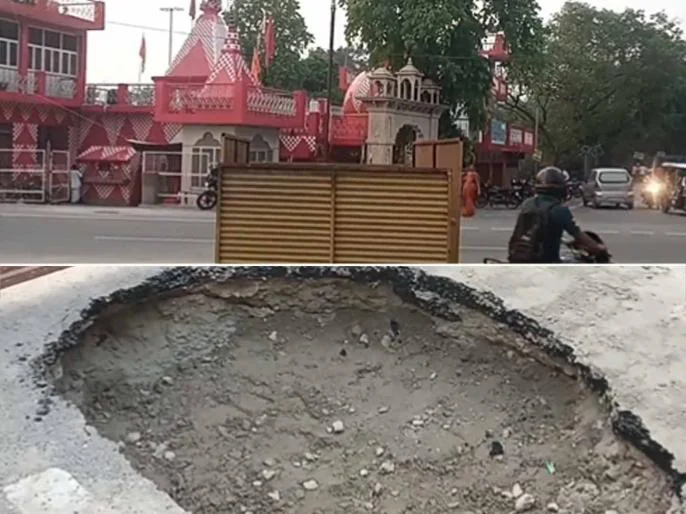Six months after the grand opening of the Ram Temple in Ayodhya, reports of leaks in the temple and potholes on the Ram Path have ignited debate over infrastructure quality and alleged negligence in construction. The government, which had previously taken pride in its infrastructure push, now faces scrutiny.
Despite the government emphasizing infrastructure in the last budget and planning to focus on it in the upcoming budget, the recently constructed Ram Path road in Ayodhya, costing over 800 crores, has developed numerous potholes following seasonal rains. Public and expert criticism has grown, calling for an investigation into the construction’s oversight and potential corruption. Questions are being raised about the entities awarded these tenders and the presence of any corruption.
Opposition leaders have quickly attacked the BJP, alleging large-scale corruption in the construction of the Ram Temple. Uttar Pradesh Congress President Ajay Rai claimed that even places of worship have become sources of financial exploitation for the BJP. Samajwadi Party MP Awadhesh Prasad, who recently defeated the BJP in Ayodhya, expressed his dismay over the deteriorating infrastructure in the temple town, a major tourist destination. During a discussion on the Motion of Thanks to the President’s address in the Lok Sabha, Prasad criticized the BJP for “lowering the dignity of the temple town and Lord Ram” by allowing it to become “filled with garbage.”
In Bihar, the situation is equally alarming, with more than ten bridges collapsing within just 15 days. This infrastructure failure has been seen as a serious issue for the state and a reminder for all states to conduct proper surveys to assess and address infrastructure risks. A public interest litigation (PIL) was filed in the Supreme Court on July 4, seeking directions for the Bihar government to order a structural audit and form an expert committee to identify and address at-risk bridges. The PIL also demanded real-time monitoring of bridges according to the parameters set by the Union Ministry of Road Transport and Highways, emphasizing the heightened risk in flood-prone Bihar.
The government also faces challenges at airports, where infrastructure failures occurred at three different airports on consecutive days, including a fatal roof collapse at New Delhi’s main airport. On July 28, Reuters reported that this incident underscored the challenges Prime Minister Narendra Modi faces in making India a global aviation hub. The government, alongside private companies, plans to invest $12 billion in building new airports and expanding existing ones as part of Modi’s broader $1 trillion infrastructure initiative to boost the economy and create jobs.
These infrastructure failures are significant and cannot be ignored. The government must take responsibility, ensure stringent oversight, and prevent future occurrences rather than shifting blame and engaging in political games. The integrity of India’s infrastructure is crucial for the nation’s economic growth and public safety.


